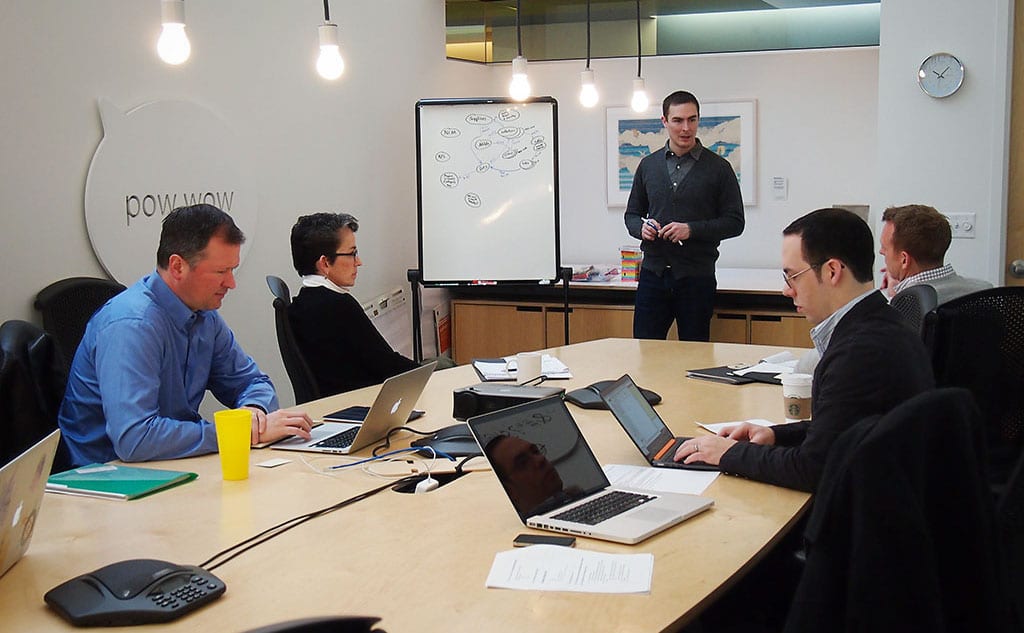I recently joined a local Vistage group run by Steve Johandes. Vistage is a peer-to-peer membership organization for CEOs, business owners, and executives of small- to mid-size businesses.
Vistage has a powerful issue processing framework that I really enjoy. It’s effective at getting to the root issue of a problem that someone is facing, and it helps identify constructive next steps.
Vistage Issue Processing Framework
Here’s the structure for the framework:
When someone brings an issue to the table, you frame it the following way.
- How do I ____?
- This issue is important to me because ____.
- What I have done to date is ____.
- What I want the group to help me with is ____.
Next, everyone else is allowed to ask clarifying questions to the person who brought up the issue. The other people in the group are explicitly not permitted to provide observations or suggestions.
Sometimes, the questions help identify that the issue bringer proposed the wrong “how do I” statement. After the questions have been exhausted, group members are allowed to nominate suggestions for an alternative “how do I” statement. Ultimately, the issue bringer either sticks with the original “how do I” statement or changes it to one of the other suggestions.
At this point, everyone in the group is allowed to provide suggestions on the issue. The best suggestions usually encompass personal stories of a similar situation and how things played out. This enables the issue bringer to draw their own conclusions about what actions to take.
Finally, the issue bringer commits to a next action by a specified date.
Atomic’s Pre-Project Consulting Helpfulness Mindset
The help and experience that the group provides to the issue bringer in the Vistage issue processing framework reminds me of Atomic’s pre-project consulting phase. Pre-project consulting is our fancy term for sales. We call it that because everyone who sells for Atomic has substantial software design and/or development experience. We understand what’s available and possible.
Atomic’s pre-project consulting phase is designed to be helpful. Helping others, even if it means identifying that we aren’t the best fit to help on a particular project, drives our long-term success. It also fits our model of putting ex-makers in the “sales” role. We’re problem solvers at heart, and we want to help.
Atomic is excellent when the problem we’re asked to help with is known, but the solution is unknown. During pre-project consulting, it’s not uncommon for us to help our clients shape their problem statement and collaboratively explore the possible solution space.
Issue Processing Framework & Pre-Project Consulting
To that end, I’ve been considering integrating the Vistage issue processing framework into some early pre-project consulting meetings. Some of the many “how do I” statements that we hear from clients include:
- How do I identify the best initial feature?
- How do I pick the right development partner?
- How do I know if I should build my native app or my mobile app first?
As problem solvers, it’s easy for us to spit back articulate answers to these questions during pre-project consulting. However, based on my Vistage experience, I’ve found it much more powerful when the issue bringer is able to identify the right next action on their own.
Our clients have much more to add to the problem and potential solution than they might think. Coming into the situation, we understand technologies and best practices, and we have experience with things that worked and didn’t. Our clients have a much better understanding of their business and clients.
Using a framework that grounds our client in a “how do I” statement and pushes us to focus on questions rather than immediate solutions is likely a more helpful practice.
The framework won’t be applicable to all situations, but I suspect it could be a very powerful tool in certain circumstances.
Has anyone else tried to use the Vistage issue processing framework during the sales process? How would you feel about a consultancy that used the framework during a sales meeting with you?


Love this! In The Authentic Sales Training Program, we teach the importance of understanding the gap between the client’s current state and the preferred state to help the client identify their critical needs. As a Vistage Chair and a Sales Consultant and Trainer, I am embarrassed that I never made this connection! Very insightful!
Thanks, Bridget. I’ve been inspired by the Vistage model, and am hopeful I can successfully apply it to other areas.
Love this reflection on how the Vistage issue processing model can be a powerful way of building a trusted relationship around solving an issue that is important for your client. I love that you work hard to make sure that you sell something that actually impacts on the underlying issue that the client faces ;-)
Thanks, Conor. I’m glad that you enjoyed the post.